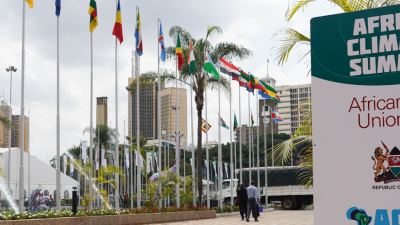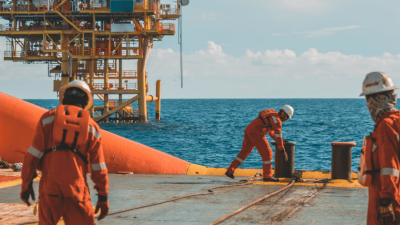
Accelerating climate action in Africa
This week marks Africa Climate Week 2023, a platform for policymakers, practitioners, businesses, and civil society to come together and fight back against climate change
This page is approximately a 3 minute read
This page was published on

A new report from an international research team, led by the University of the Philippines Visayas and funded by Lloyd’s Register Foundation’s small grants programme, reveals which interventions were offered to seafarers during the pandemic – and which they believed were most valuable in helping to manage mental health and wellbeing.
The team, which included World Maritime University and the University of Plymouth, identified 22 interventions as part of the pilot study*, with 11 provided by company employers and 11 by other industry stakeholders such as seafarers, charities, and government.
Almost 80% of seafarers said the most common intervention provided by employers during the pandemic were regular updates on crew changes and COVID-19, followed by timely crew changes (57%) and provisions of sufficient and high-quality PPE (53%).
Facilitating timely crew changes were listed by 79% of seafarers as the most useful action an employer could provide while 68% said that the provision of immediate family support would have been the second most useful – something that only 21.9% of companies provided.
The most common interventions by industry stakeholders experienced by seafarers were positive collegial atmosphere on board (77%), physical exercise (70%) and casual counselling among crew members (70%).
However, those listed by seafarers as being most useful were communicating with family (87%) and being prioritised for vaccination (77.6%). Less than a third (30%) of respondents were vaccinated against COVID-19 at the time of the survey.
Senior Programme Manager at Lloyds Register Foundation, Olivia Swift said: “There’s a real disparity between what has been provided and what seafarers believe they would have found most valuable in terms of mental health. While some seafarers have experienced timely crew changes and vaccination against COVID-19, there was more than could have been done. Other options that would be useful but have either not been accessible or have not been used are meditation, mental health helplines, port chaplain services, an increase in WiFi data allowance and a reduction in overtime hours. We must recognise that seafarers are humans first, workers second and this pilot study shows that both companies and other stakeholders could do more to provide support. These findings will hopefully be of great interest and use to maritime charities and employers.”
The findings have led to a series of recommendations for the industry. Dr Sanley Abila from the University of the Philippines said: “Overall, companies should improve their efforts to support seafarer’s mental health and wellbeing especially during crisis situations, with timely crew changes and provision of immediate family support. Governments should also make sure that seafarers are provided with COVID-19 vaccines, prioritising them as essential or frontline workers.”
The study will contribute to Lloyd’s Register Foundation plans to build capacity in ‘What Works for Wellbeing in Maritime’ and complements a Lloyd’s Register’s COVID 2020 survey which looked at significant crew safety and wellbeing lessons learned from the pandemic.
It also follows a series of Foundation-hosted round tables last year which discussed which factors risking seafarers’ psychological wellbeing should be prioritised for action, based on what is practical, affordable and deemed valuable. The findings from those round tables contributed to a new report by Yale University, funded by the Seafarers Hospital Society which takes stock of all the existing research recommendations and the extent to which they have been adopted by industry.
Lloyd’s Register Foundation has also funded The SafetyTech Accelerator to engage stakeholders with tech solutions for objective, ethical, real-time assessment of seafarers’ wellbeing, enabling more timely and effective interventions in support of both seafarers and safety.
*The pilot study involved in-depth interviews with 26 seafarers and survey responses from 1,412 seafarers. Filipinos made up 67% of the respondents, with 8% Chinese although the pilot study included seafarers from several countries also including Brazil, India, Jamaica, Japan and the UK. The average age of respondents was 30 years old and 96% were male. More than half of respondents (67%) had non-permanent contracts.